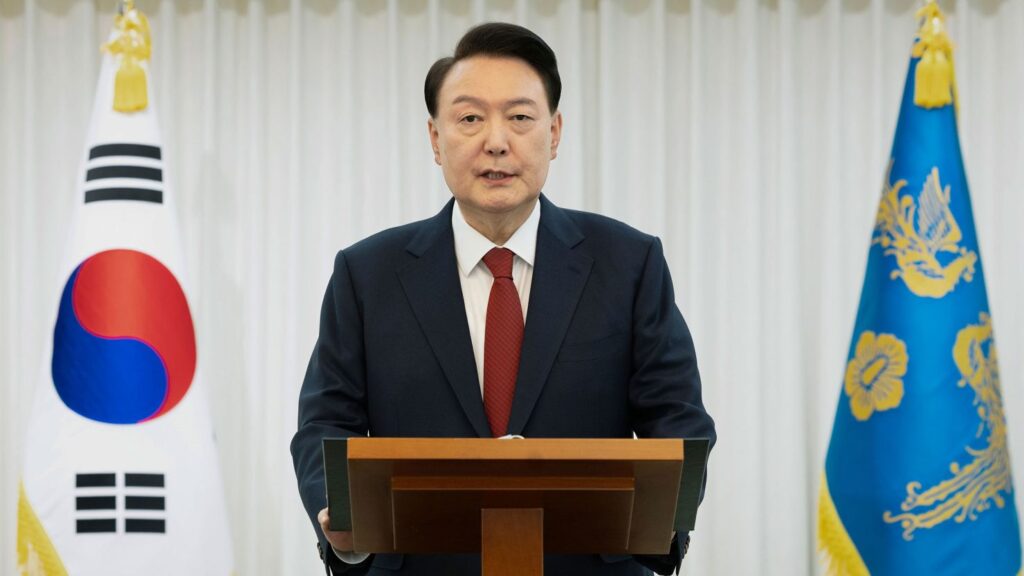South Korean lawmakers voted to impeach President Yoon Suk Yeol on Saturday following his failed attempt to impose martial law last week.
Of the 300 lawmakers, 204 voted in favor of impeachment on charges of insurrection, while 85 voted against it. Three lawmakers abstained, and eight votes were nullified.

A two-thirds majority was needed to approve the impeachment resolution, which claimed that Yoon had incited unrest and threatened the public and National Assembly.
Prime Minister Han Duck-soo has been appointed interim president in place of Yoon, whose presidential duties and authority have been suspended. After deliberating for 180 days, the Constitutional Court is scheduled to decide whether to sustain Yoon’s dismissal. A presidential election would be held within 60 days if the court rules against Yoon, making him the second president in South Korean history to be successfully impeached.
The Crisis In South Korea
A turbulent time in South Korean politics preceded the impeachment vote, during which Yoon’s approval rating fell to a record low of 11%. Protesters have called for Yoon’s arrest and removal in large-scale rallies conducted throughout Seoul. 1,000 security guards have been sent in by the city authority to keep the peace.
Yoon’s attempt to declare martial law on December 3 was widely denounced as a revolt by experts and opposition groups. The president had stated that one of the reasons for his decision was to eliminate domestic political support for North Korea. His actions were viewed as a risky bet, though, and they have exposed the country to security risks.
A number of top military officers are being investigated, and the country’s former defense minister is currently under custody as a result of Yoon’s activities. The state of affairs has raised questions about the country’s capacity to address security risks, especially in light of the heightened tensions with North Korea.
Read Also: PIL In Gujarat HC Over Panjarapol Flyover Seek Removal Of Blacklisted Builder